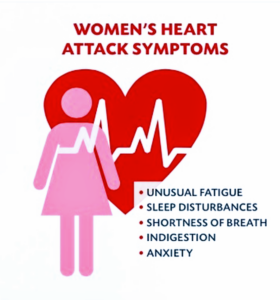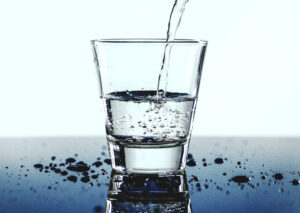There are a lot of myths about heart health. We’re sure you’ve heard some people say that heart disease is only for older people; or heart disease doesn’t affect women who are fit; or heart disease won’t affect you because it doesn’t run in your family. Well, these are all untrue. Heart disease is a killer that strikes more women than men, and is more deadly than all forms of cancer combined. So, we thought since it’s Heart Month, we’d post something that we hadn’t heard before. Did you know that the likelihood of having a heart attack in the bathroom is higher than anywhere else?
“How To Avoid A Heart Attack in the Shower”
This was proposed by a professor of medicine from UTM in Malaysia. According to Dr Ariel Quintana, in order to avoid a heart attack in the bathroom, people should avoid getting wet from the head down when they shower. This is an interesting finding that we thought RedLily® readers should have in their heart health arsenal.
Newsflash! Heart attacks can happen at any age. Cardiovascular disease is the No. 1 killer of women, causing 1 in 3 deaths each year.*
How to lessen your chances of having a heart attack:
When you hop in the shower and your head hits the water first, this causes the body to adjust its temperature very quickly by the condition of your blood. In other words, the blood gets hot.
By doing this sequence incorrectly, the blood flow increases its speed to the head too quickly to compensate for the difference in temperature, which may eventually cause vessel tears of the capillaries, arteries, and therefore an infarction (obstruction of the blood supply to an organ or region of tissue).
The right way to have a shower is to start by wetting the feet first, then the legs, and gradually to the shoulders, and finally the head. Follow these instructions and then complete your shower normally.
This step-by-step is especially recommended for people who are hypertensive, have high levels of cholesterol, or suffer from migraines.

Always be aware
Take note of your blood pressure, heart rate, and overall temperature at all times. Even when swimming or enjoying a soak in the hot tub. Don’t wait until your body is ready to “boil” over. Here’s how to keep track:
Blood Pressure 120/80 - Normal 130/85 - Normal (Control) 140/90 - High 150/95 - Very High Heart Rate 72 X minute (Standard) 60 - 80 pm (Normal) 40 - 180 pm (Abnormal) Temperature 36. 5 F (Normal) 37. 5 (Fever)
Effects of Water
You probably know that water is important to survive, but do you know when you should drink it? Or why drinking water at certain times during the day can maximize the efficacy of the human body? Read on.
 1 cup of water after waking up helps the internal organs.
1 cup of water after waking up helps the internal organs.- 1 cup of water 30 minutes before a meal helps with digestion.
- 1 cup of water before taking a bath helps download arterial pressure.
- 1 cup of water before going to sleep helps avoid stroke or heart attack .
*Source: goredforwomen.org
Thank you for reading this article! Please share this info with the women (and men) you know and love.
Happy Heart Month!



